How Carmela Soprano Is A Dharmic Hero
As explained thru Hindu comic books
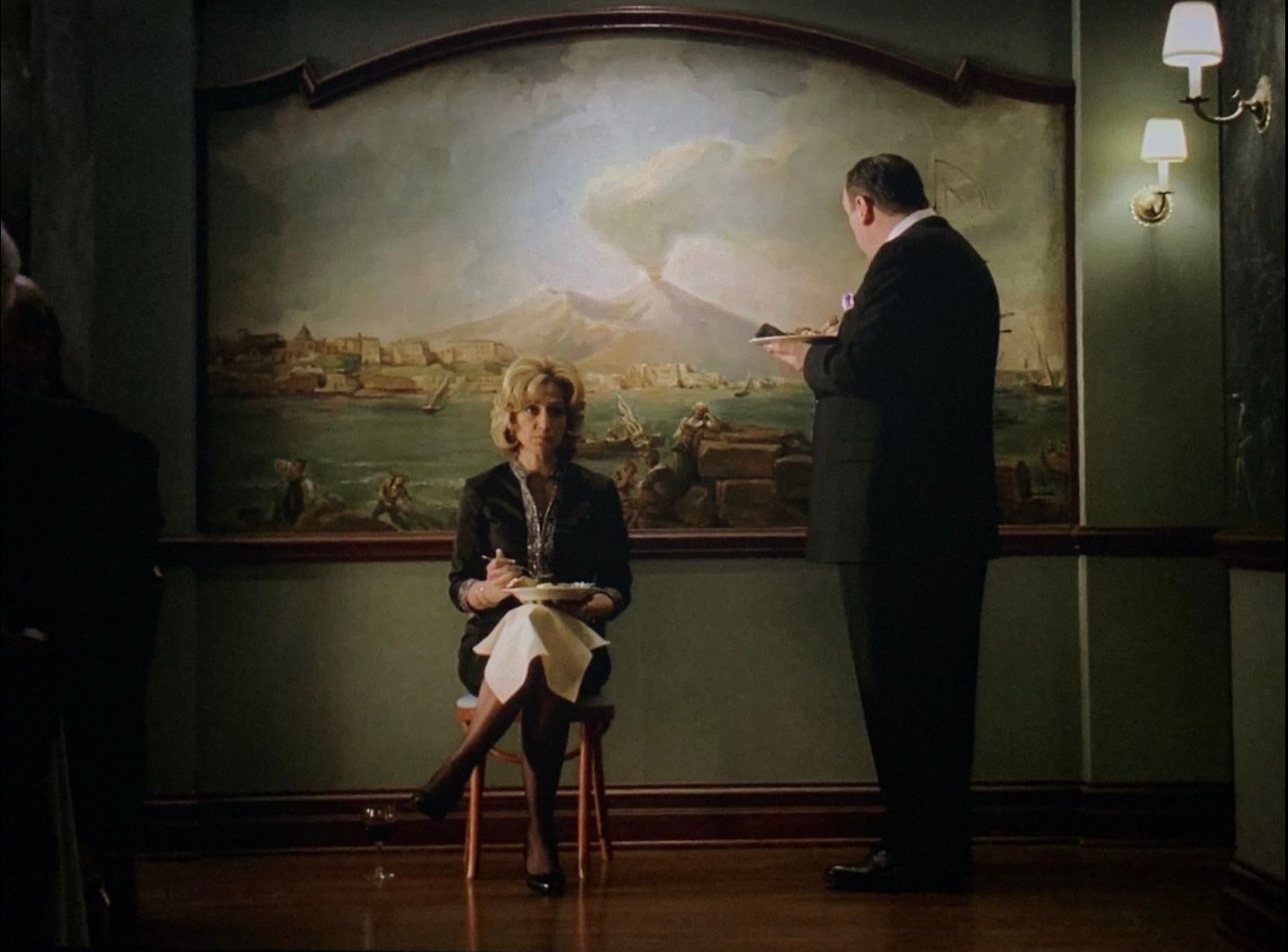
Tony Soprano was TV's first anti-hero, but the show still has a hero. It's his wife, Carmela. In a very Gita or Kannagi sense, she's a dharmic hero. She does her duty. She's a good wife to a bad man. She's the hero to his anti-hero.
Dharma
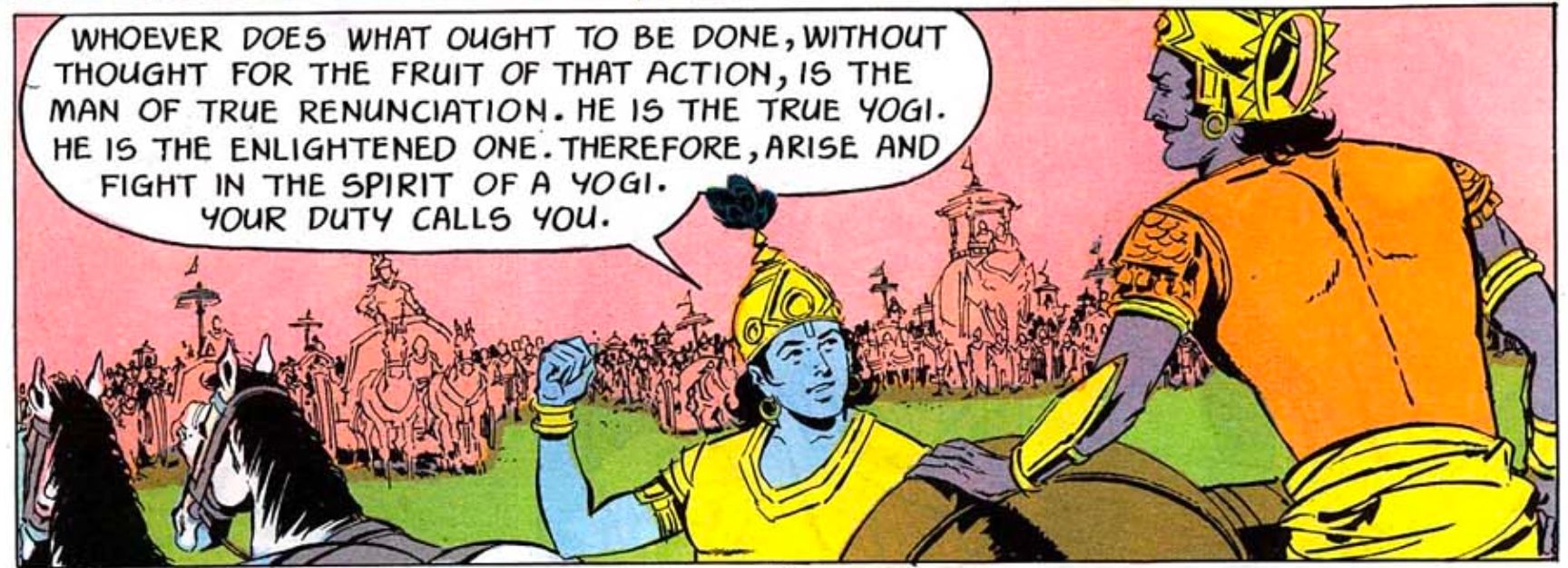
Dharma is, inadequately explained, doing your duty. Fulfilling your societal role. Following the morality specific to you. The god Krishna (in blue) gives an entire sermon on this in the Bhagavad Gita.
Here the warrior Arjuna is about to slaughter his cousins when he just drops his bow in the middle of the battle-field, bereft. "How can I kill my fam?" he says. "Bro," says Krishna, "you're part of a bigger plan."
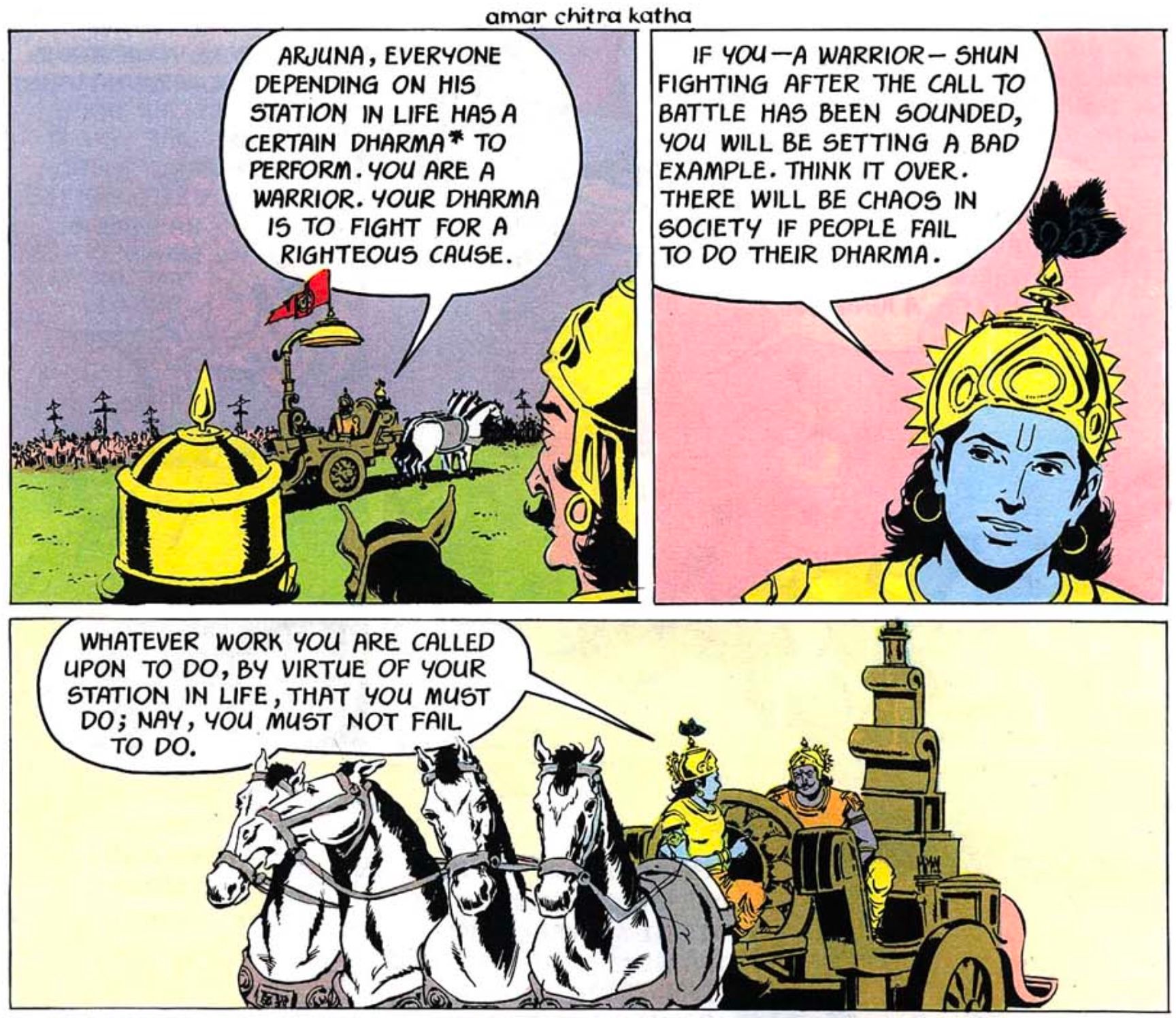
The Gita is like the Hindu Sermon on the Mount, an isolated passage used to encapsulate a whole philosophy, in many ways the same philosophy underpinning Buddhism. As much as it seems to underpin caste and class bullshit as well, there's a deeper meaning to it, about meaning itself.
The Gita offers a very different conception of good vs. evil, namely that the very distinction is a misconception. All things are one. According to Krishna, an 'even-minded' person can feel this and just acts in accordance to dharma. You don't crave a particular outcome, but just do what you do as a part of cosmic order, on a cosmic scale which, by definition, the human mind cannot understand.
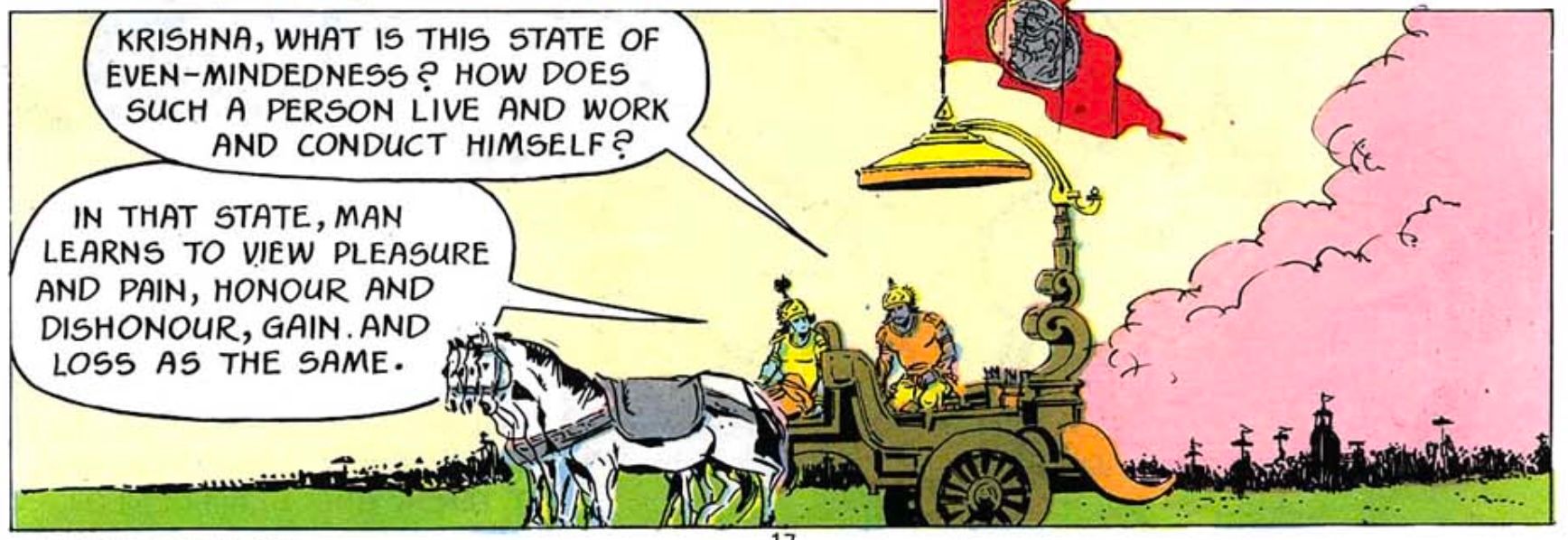
To Krishna even an uneven-minded person can still approach this vibe through worship (through him) which is the access given to Arjuna. Krishna reveals his true form and blows Arjuna's mind.
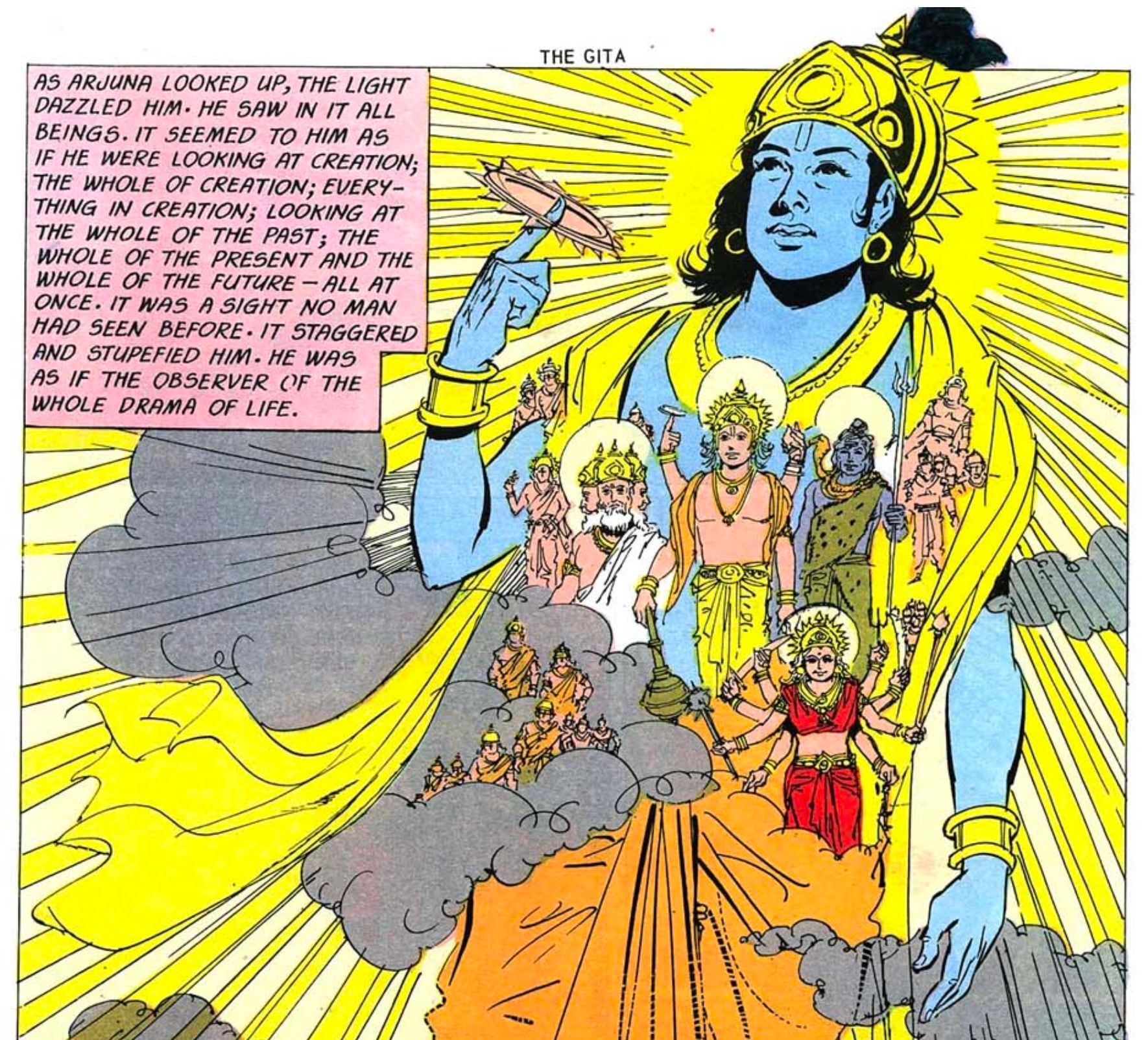
Whereas Enlightment thought is all about the sanctity of the individual, more ancient thought is about the sacredness of the whole. While modern thought is about self-satisfaction, the ancient is more about fulfilling your role.
Tony even delivers his own Gambino Gita to his therapist, saying "We're soldiers. Soldiers don't go to hell. It's war." The Sopranos come from an old culture that they still remember, one which is not as individualistic as the Ameddigans they live among. This is one of the tensions that drives the Sopranos, that between old world and new.
In the image at top, Tony is eating his ancestral food, looking at a painting of his ancestral land, but they're in New Jersey. Italy's not India, but the Catholic institution of marriage is close.
Dharma for Women
Dharma for women is (as conventionally received) mostly being a wife. That is her primary societal role. One illustration of this idea is from the story of Kannagi, who is still worshiped as a paragon of virtue today.
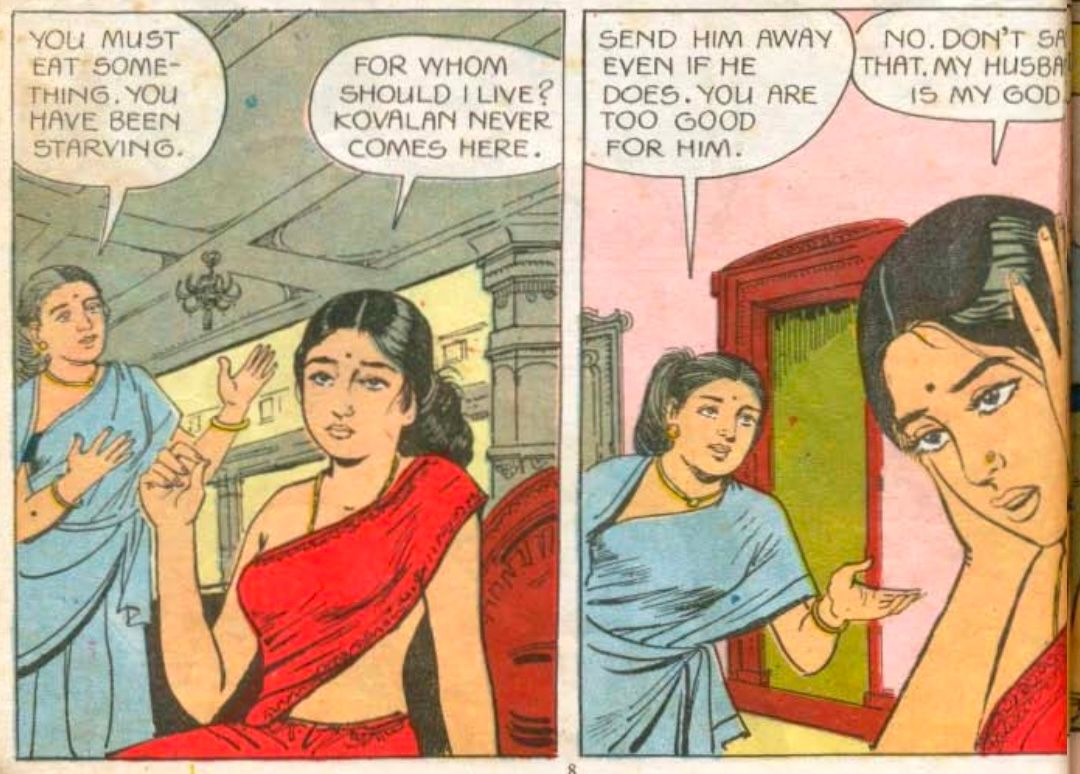
Kannagi is basically a great wife to a shitty husband. He runs off, cheats, loses all their money, and she still welcomes him back. When he gets executed in the city, she burns the whole damn city down.
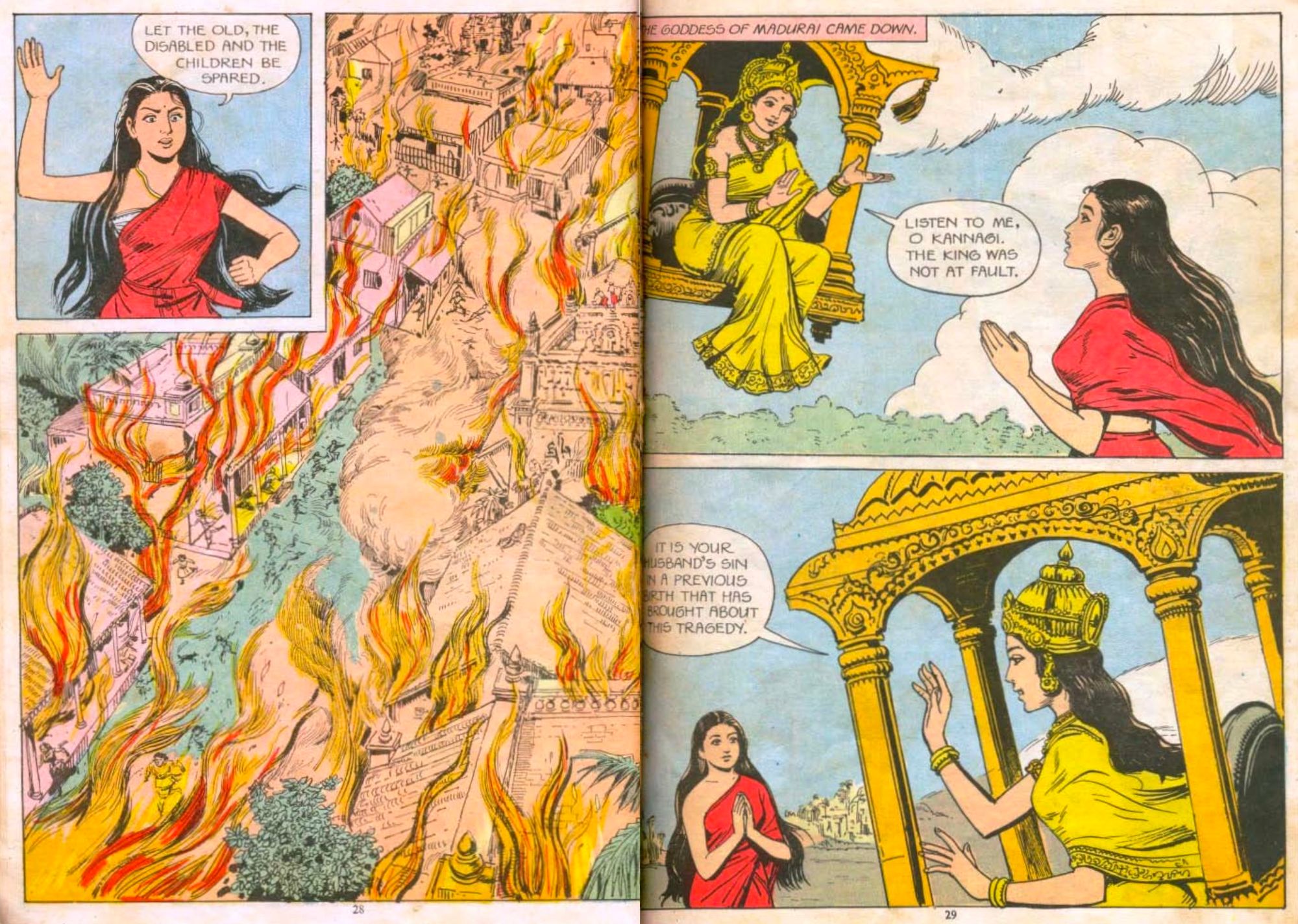
Many Hindu stories have this post-credits scene, where a god comes down and reveals everyone's past births, and how everything makes sense. That is, the good guys were bad once and the karma is just evening out, only on a timescale humans don't understand.
What the gods are always pointing out is that "you don't see the whole picture, just fulfill your role." Hence Kannagi, ignoring every temporal red flag (her husband essentially pawned her jewelry at the strip club) fulfilled her extratemporal role. This is why people still worship her today. She's a dharmic hero.
Which brings us to Carmela Soprano.
Carmela Soprano
In one of the most powerful scenes in the series, Carmela gets some honest advice from a therapist. Dude speaks total facts, "you're telling me he's a depressed criminal, prone to anger, serially unfaithful, is that your definition of a good man?" He's right, but he does not speak to her soul.
Carmela, in her tormented way, cites Catholicism in her defense. The sanctity of the family. The same advice her priest gives her. Fulfill your role. Even if it seems impossible, even if it seems illogical, fulfill your role.
When Carmela says "all I do is make sure he's got clean clothes in his closet, and dinner on his table" that's actually a statement of dharma, as important as Arjuna fielding his bow. She of course does much more than that. She is more than civil to his terrible family, most of whom try kill him. She never speaks ill of him to their children, even when they turn on her. She does her duty. Perhaps she even burns Newark to the ground after he dies.
We may not agree with this conception of heroism, but it is an ancient one. Someone who does not do the right thing but does their right thing. Carmela Soprano fulfills her role. She is a good wife to a bad man. We, like her therapist, see this as weak, as immoral, she sees herself as pathetic as well. But it's not clear. How long is time? What is meaning? We cannot know.
Carmela Soprano does not save the world. She does not save her children. She does not even save her husband. She miserably, pathetically, tragically just fulfills her role.
I'm not saying that this is good—honestly leave your cheating mob boss husband, fuck these patriarchal roles—but it does get you thinking about a metaphysical realm above good and evil, and about the fact that we're part of a bigger and completely incomprehensible whole. It gets you thinking about the Gita, and what we're supposed to do in a world we cannot understand.
Carmela Soprano is not a conventional hero, but she's not an anti-hero either. Like Kannagi, she is a paragon of wifely devotion to a husband who deserves to be kicked to the curb. Like Arjuna, her duty sucks, but she does it. Like all of us she is a character in a drama that just fades to black without resolution, just doing what she has to do. The Sopranos is the story of Tony Soprano, but it's also the drama of her dharma. Carmela Soprano is a dharmic hero.
I invite you to sign up for a paid subscription to my newsletter. You get the same access with a free subscription, but the paid one helps me fulfill my dharma and write full-time.